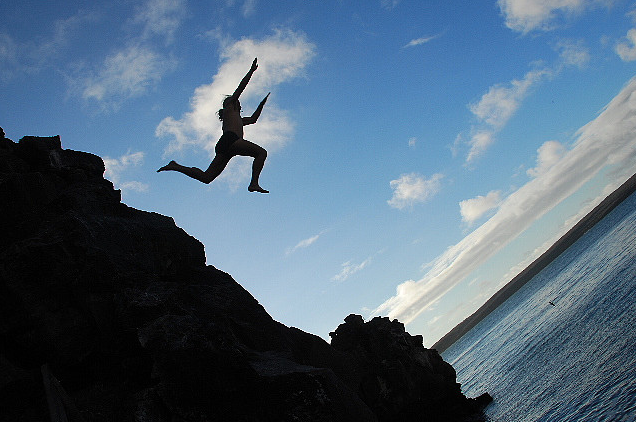
“Whatever you fight, you strengthen, and what you resist, persists.” ~Eckhart Tolle
I was very shy growing up, especially in lower and middle school. I moved from the US to London when I was five. Although I don’t remember a lot of my experience in lower school in London, I do know that when I first started I refused to speak or read aloud.
I was in a completely new environment. I was confused and anxious, and it made me afraid of new situations.
As the year progressed I settled in pretty well. I made friends and would not have a problem speaking in class. Everything seemed to be going well until I switched schools at thirteen and dealt with two years of harassment and bullying.
By this point, I was going through puberty and started to care about my appearance. From the get-go, I would always compare myself to others, and it would make me anxious and self-conscious.
I had a hard time making friends because I would be so focused on what they were thinking about me when talking to them that I couldn’t focus on the conversation. I couldn’t open up to people either, which made me feel as if it was impossible to truly connect with them.
I felt different from everyone. But I tried to hide it the best that I could, and it became a quiet inner battle.
When I was being bullied at school, I tried to keep all my emotions inside and hide them, which is probably the worst thing I could have done. I would literally dread getting up in the mornings for school.
Then one day I had to give an oral presentation to my class. I was already nervous to stand up in front of everyone and have their attention on me. But to make it worse, they would make faces, smirk, laugh, and whisper. I couldn’t concentrate on what I was saying.
I had a panic attack. My heart was beating so hard and so fast, my body was shaking all over and so was my voice. This only made me panic more, and as a result I lost my voice and couldn’t speak.
My teacher recognized what was going on and told me to sit down. I have never been more embarrassed in my life, and that day brought my self-confidence down to an all-time low. After that, every time I found out I had a presentation coming up, it would give me so much anxiety. I would do anything to avoid it.
Sometimes I would skip class or pretend to be sick. I actually remember one time I just bawled my eyes out in the car with my mom, just begging her to let me stay home.
It was a true phobia; my body would go into panic mode whenever I would stand up in front of people because it thought I wasn’t safe. And running away from the situations only made it worse and made me have even lower self-worth than I had to begin with.
My parents recognized something was going on, and they let me switch schools shortly after. I immediately felt a lot more accepted there and took the opportunity of a fresh, new start to not be afraid.
I knew it would be easier to tackle my fear of public speaking here, since I no longer felt threatened by my peers. But I also knew that practice would help me develop the confidence to face future situations when I might feel judged again.
I realized:
1. It only makes things worse to avoid the thing that scares you.
The more you face your fear, the more likely you are to realize that you are safe and able to so. And if there are parts of facing your fear that feel unsafe, you will realize through repeated exposure that you are strong enough to confront and deal with them.
2. The more you face the fear, the less terrified you’ll feel.
I stopped allowing myself to skip the days where I had to give a public speech and instead forced myself to do it, which made me feel a sense of accomplishment. It also allowed me to get better at keeping my nerves under control.
3. Focus on your breath, not your fear.
The beginning of the speech is always the hardest for me, so I taught myself to focus on my breathing in the minutes leading up to it. When you’re in a situation that terrifies you, inhale slowly, exhale slowly, and concentrate on that. It will help you stay grounded instead of getting caught up in fearful thoughts.
4. Practice builds confidence.
I would avoid preparing for my speech because even the thought of doing that would make me nervous. When I took the time to really perfect my speeches, I felt far more confident doing it because everything would flow much better.
I am so happy to say that now I can handle presentations. They no longer make me nervous, and I don’t hide from them anymore.
In fact, now that I am long out of junior high, I look forward to public speaking because each time I give a presentation I feel this huge sense of accomplishment. I have also learned to apply these same ideas to any other situation that triggers anxiety, such as job interviews or anything that requires the focus to be entirely on me.
I feel like a totally different person now that I know how to deal with and control my anxiety. I still experience situations where I feel anxious, but it’s nothing like it used to be, and that’s a truly amazing feeling.
If you are faced with an anxiety-provoking situation, the best thing you can do is face it. Know that you are strong enough and completely capable. You just need to build your confidence—and you will if you stick with it.
Photo by Eric Chan













 Though I run this site, it is not mine. It's ours. It's not about me. It's about us. Your stories and your wisdom are just as meaningful as mine.
Though I run this site, it is not mine. It's ours. It's not about me. It's about us. Your stories and your wisdom are just as meaningful as mine.
Good girl
So inspiring to read, Thankyou 🙂